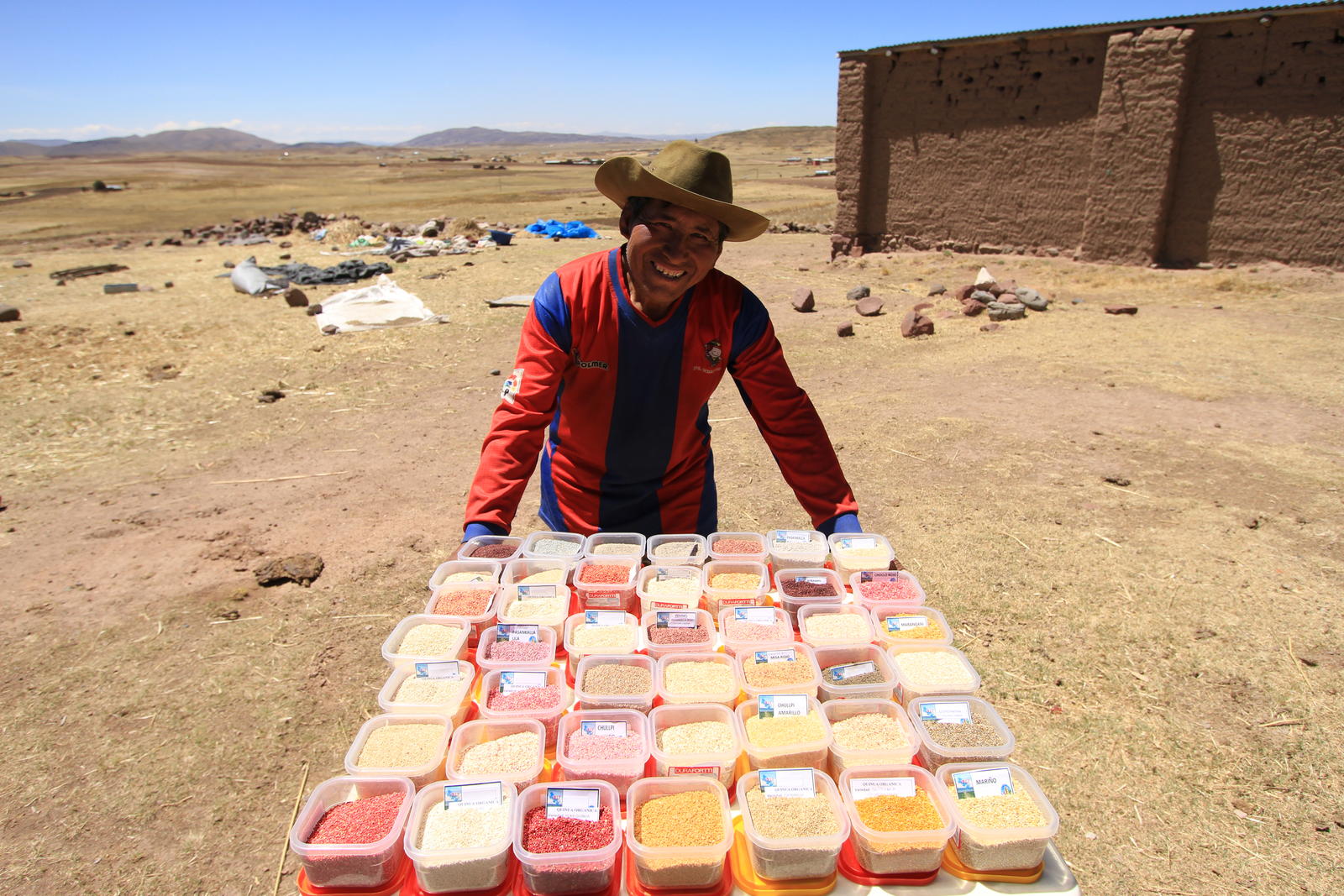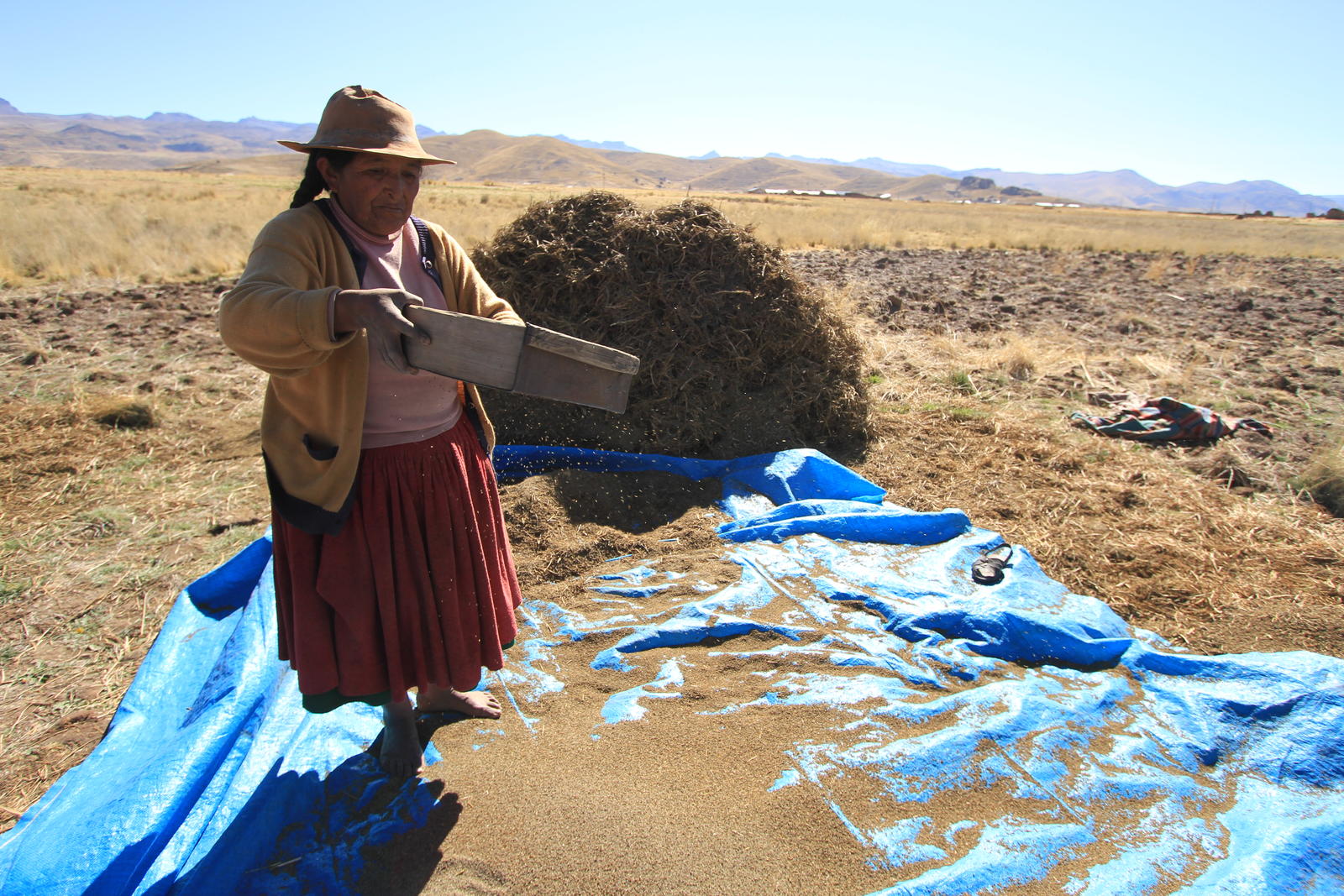September 13, 2018
Andean grains producers of Peru join development
In recent years, exports of quinoa and other Andean grains grown in Peru have increased exponentially. However, the great international demand has not translated into an improvement in the quality of life of the producers. The situation is especially difficult for women living in rural communities, who represent 69% of agricultural producers, who face significant difficulties compared to male agricultural producers. To reverse this situation, in 2015 the Sustainable Development Goals Fund promoted a joint program with the idea of the value chain of quinoa production that will improve grain production, increase the income of small farmers, improve overall quality of food and nutrition in the community. Two years later, more than 4000 beneficiaries had joined the program, half of them women.
In Puno the "Model of development of the value chain of quinoa and other Andean grains" through which the Organic Program has been implemented that will contribute to raise the competitive level of 502 producers of 32 organizations. The 2016 harvests of its 581 hectares of quinoa sown was fully certified as organic. Two inclusive businesses with approximately 2,700 producers and producers are being implemented in Puno and Ayacucho, in order to raise the levels of associativity and promote local and regional consumption of Andean grains, contributing to the food security of the populations.

In Puno and Ayacucho, 21 facilitators and extension agents have been certified in the development of value chains, cooperativism, financial education, gender equality and complementary topics (prevention of family violence and alcoholism and food security in the home). These facilitators have trained more than 2,000 producers in both regions on the aforementioned issues, including 50% of women. In both regions, 52 producers and seed producers were trained in certified seed production; 288 producers in production of organic fertilizers; and 138 producers using organic fertilizers.
In Puno, the collective brand of AYNOK'A quinoa has been formed with different producer organizations, who will receive technical assistance in commercial matters and traceability issues. 35 professionals from public, private, academia and civil society institutions from Puno, Ayacucho and Lima participated in a course on the Value Chain of Quinoa and Other Andean Grains, given by an expert from the International Training Center of the ILO in Turin, Italy. The process of forming and formalizing a permanent Multisectoral Commission for the development of the value chain of quinoa and other Andean grains at the national level has begun; In addition, the Technical Tables of Puno and Ayacucho are being accompanied by the joint programme in a strengthening process.

The joint Andean grains program of the SDG Fund, developed between January 2017 and the end of 2017, was aligned with national policies on social welfare and economic development to reduce poverty and social vulnerability, such as the National Strategy for Growth and the National Plan for Productive Diversification.
The objectives of the program were divided into five main pillars: 1) Generate new income and employment opportunities, with new inclusive business models and the articulation of best practices in the quinoa value chain. 2) Train and train both male and female agricultural producers in the management of production, cooperation and marketing of their products. 3) Promote the national consumption of quinoa and other Andean grains, to support production and promote better quality nutrition. 4) Strengthen public-private cooperation and knowledge management for the sustainable development of the quinoa value chain. 5) Contribute to the adoption of productive practices on climate change.






